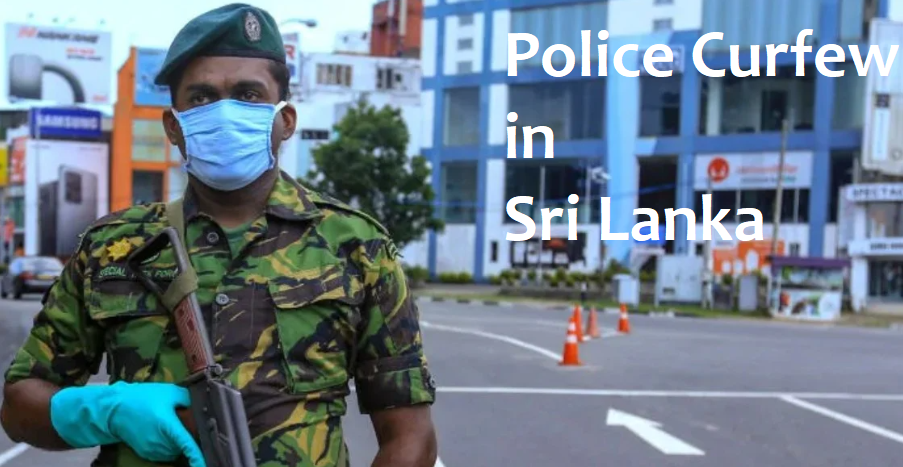In a letter addressed to the Chairperson and other members of the Human Rights Commission of Sri Lanka, former MP M.A. Sumantiran says that although the restricting movement is desirable and necessary at this time in our country in order to meet the challenge presented by COVID-19 such restrictions including curfew must be imposed legally under applicable provisions of law and in so far as he has been able to ascertain, this has not been done under any extant legal provision. Such action, therefore, poses a grave threat to the Rule of Law and indeed to the well-being of the people of this country. In this context, he requests the HRC SL to give due consideration to the matters raised by him in view of the very serious public importance of this issue and advise the government on the need to rectify and regularise this matter without any further delay.
The letter follows:
M. A. Sumanthiran, B.Sc., LLM 3/1 Daya Road
President’s Counsel Colombo 6.
0777314628
3rd May 2020
The Chairperson and other members of
The Human Rights Commission of Sri Lanka,
Colombo 4.
To: Madam Chairperson and other members,
Imposition of “curfew”
I write this in the public interest.
However, at the outset I must declare my “interest” in a related matter. I appear as Counsel in the Nugegoda Magistrate’s Court in Case No: B/1454/20 for Mr Ranjan Ramanayake, former Member of Parliament. In the course of my submissions made to court on 20th April 2020, I took up the position that no curfew has been declared in the country in terms of any applicable law. Having recorded my submission in this regard and while granting bail to my client, the learned Magistrate very specifically held that he was not making a determination as to the legality of the curfew at this point in time. It is pertinent to note that my client has not been accused of violating any curfew.
An island-wide “curfew” was declared from 6pm on 20th March 2020 and announced to the country by the President’s Media Division (PMD), which has virtually been in force up to now with variations in certain districts and “curfew” being “lifted” and “re-imposed” at different times in different places.
I am of the opinion that restricting movement is desirable and necessary at this time in our country in order to meet the challenge presented by COVID-19. There is no gainsaying that such restrictions including curfew must be imposed legally under applicable provisions of law. Insofar as I have been able to ascertain, this has not been done under any extant legal provision. Such action therefore poses a grave threat to the Rule of Law and indeed to the well-being of the people of this country.
The Supreme Court of Sri Lanka has noted that any restriction on the freedom of movement guaranteed by Article 14(1)(h) of the Constitution must be prescribed by law:
“…[t]he right of citizens to travel on public highways and to have access to public places may only be curtailed by restrictions imposed in terms of Articles 15(6) and 15(7).” – vide Vadivelu v. OIC Sithambarapuram and others [2002] 3SLR 146.
In conclusion, Mark Fernando J. held:
“There is force in the respondent’s contention that the restrictions complained of were imposed in the interests of national security, and were reasonably necessary for that purpose. However, Article 15(7) required that such restrictions be imposed by a law, or by regulations made under the law relating to public security. Accordingly, the travel pass system constitutes a restriction not authorized by Article 15(7).
I hold that the petitioner’s fundamental right under Article 14(1)(h) had been infringed by executive action by the application to him of the travel pass system”
Article 15(7) of the Constitution very specifically provides: For the purposes of this paragraph “law” includes regulations made under the law for the time being relating to public security”
In these circumstances I wish to draw your attention to Section 10 (c) and (d) of the Act No.21 of 1996, by which the Human Rights Commission is empowered to advise and make
recommendations to the government and urge you to kindly address this particular situation which I detail below:
Curfews in this country have hitherto been imposed by the use of Emergency Regulations after bringing Part II of the Public Security Ordinance into operation by means of a proclamation. This has not been done in the present instance. Further, there is provision under Section 16 of the Public Security Ordinance (which comes under Part III) to impose restrictions on movements of people by making publication in the Gazette to that effect. This also has not been done.
There is also the question as to whether the law relating to public security can be utilized to impose curfew for exigencies of public health hazards. But leaving that question aside, there is at present no regulation made even under the Public Security Ordinance. Thus, the present “curfew” has not been legally imposed, however desirable and necessary it may be. In fact, it is all the more important that the restrictions on the freedom of movement be properly and legally prescribed and enforced given the grave need for such in the present context and the need for certainty in this regard.
Although, in view of the above, it is not necessary to discuss the regulations made under the Quarantine and Prevention of Diseases Ordinance, I am annexing copies of same to show that in any case, none provide for the imposing of curfew.
I trust the Commission will give due consideration to the matters raised by me in view of the very serious public importance of this issue and advise the government on the need to rectify and regularise this matter without any further delay.
Read the PDF:HRC – Curfew – Encl (2)
